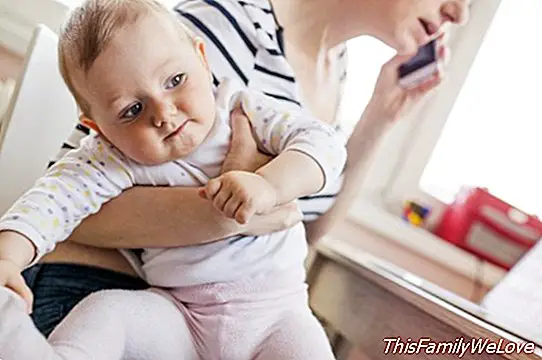Spanish parents are the most stressed in Europe
The arrival of a baby It is usually an experience, without a doubt, singular, but at the same time wonderful and rewarding like no other experience, and also exhausting and stressful. Being a parent is a unique event in anyone's life. In fact, what most of the dads who already have their baby in their arms agree is that a son definitely changes your life.
And precisely, this is what has just confirmed the latest study that has developed the international platform Sitly, which connects families with child caregivers. This research, which has taken the pulse of European parents, in Spain and Italy the highest levels of parental stress in the European Union are registered.
Specifically, 33% of Spaniards claim to be constantly stressed since they have had children, while 34% of Italians say they are in the same situation.
Just on the other side of the coin are the countries of northern Europe, where these percentages drop considerably. It is striking that Norway, with one of the highest birth rates in the European Union, the percentage of stress is very low, only 11% of parents say they are stressed. Up close, they are followed by Finland where only 22% of parents say they feel more stressed since they are parents and Denmark where this level reaches 28 percent.
The reason for this difference between the north and the south is, in the words of Patricia Adam, head of communication at Sitly, "the economic and social support provided to families in the Nordic countries, where the measures to reconcile work and family life are a clear commitment, it would explain this difference. "As for conciliation measures, Spain is still in the wagon, the recent extension of paternity leave, together with the decrease in Maternity of 4 months, continues to be scarce for most families.
The reduction of working hours, a solution?

With the arrival of a newborn, couples feel overwhelmed and as their child grows, they have less time for themselves because their schedules revolve around those of their children. The generalized difficulty of making the hours of a daycare center or school compatible with long working hours joins the fact that some parents can not count on family help, and they must opt for a babysitter or nanny. For many families, the solution is to reduce working hours for the father or mother.
Precisely, this inconviente worse in summer, during the holidays and many are the parents who lament the lack of coherence between the school calendar and their work holidays.
In fact, according to the study on the school year of Eurydice, the European Information Network on Education, Spanish students have between 10 and 11 weeks of summer vacations, which puts us almost at the head of Europe. 52% of Spanish parents say they have thought about reducing their work day at some time, because they do not find a child care option that adapts to their needs. And 43% would have preferred to ask for a leave of absence, if they had the chance, to be with their children. However, most parents are clear that they would never give up their professional career because they had children (65% of respondents).
Priorities and change of habits
Expanding the family can not only transform the work life of parents, social changes are also noticed. "The parents surveyed lament the lack of time and energy in general, the nocturnal outings are scarce and they stop being spontaneous because they have to be planned in advance, the main reason being that leaving the children in the care of a relative or a Nanny should be organized with a certain margin ", explain from the platform.
Thus 52% of Spanish parents say they have less desire to go out at night after the arrival of their first child. The Dutch follow with 48%, the Italians and Norwegians also complain about this aspect, both with 47%. Surprising the response of Finnish parents, almost eight out of ten say they have less desire to leave on weekends since they have had children.
Changes in the couple's relationship
All parents agree that they are much more tired since they have children and they regret not being able to devote more time to their partner. Having a romantic dinner or finding opportunities for sexual intimacy is more complex with children at home.
Facing the difficulties posed by the challenge of educating and seeing a child grow is not an easy task for most couples. Thus, 37% of Spanish parents say that their relationship has worsened after having children. Some parents even confess to envying other couples who are not parents, 16% of the parents in the case of Spain.




